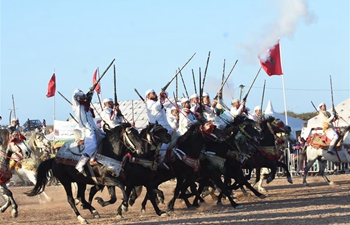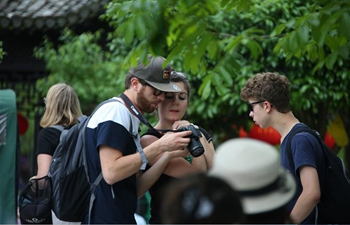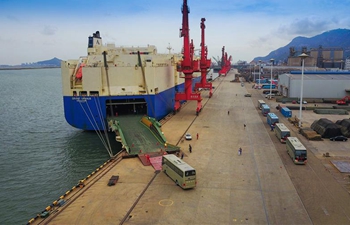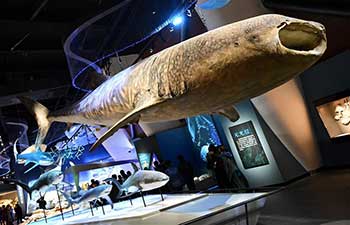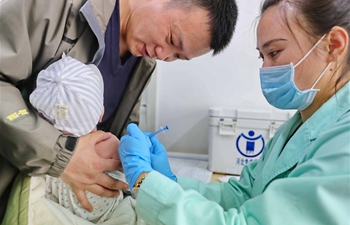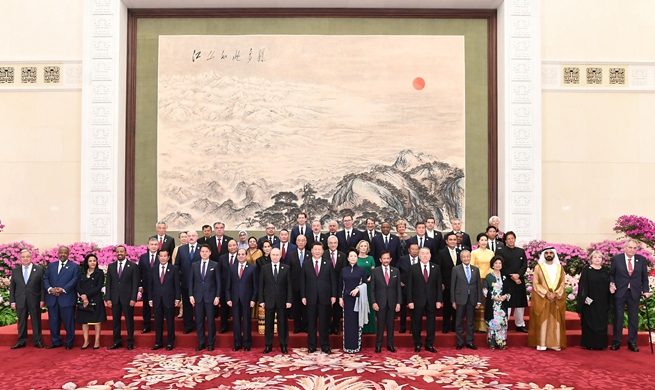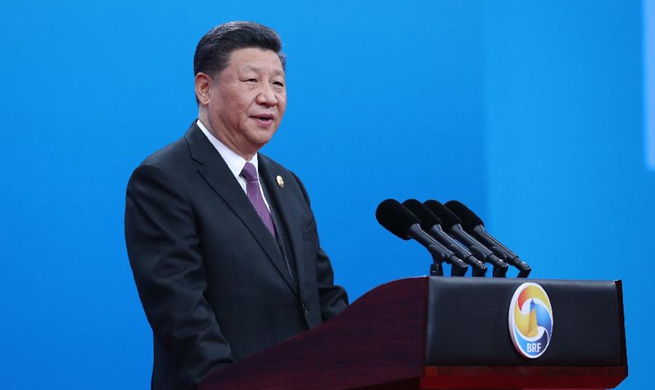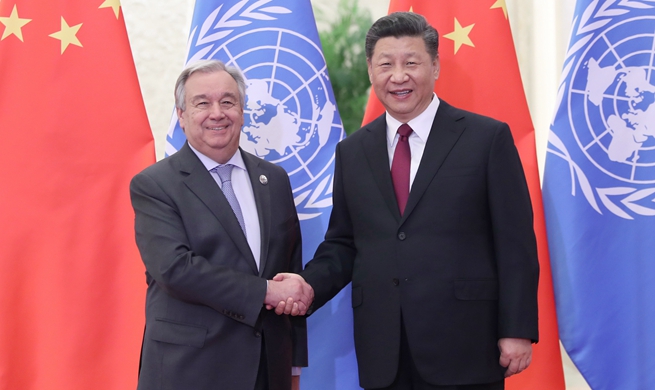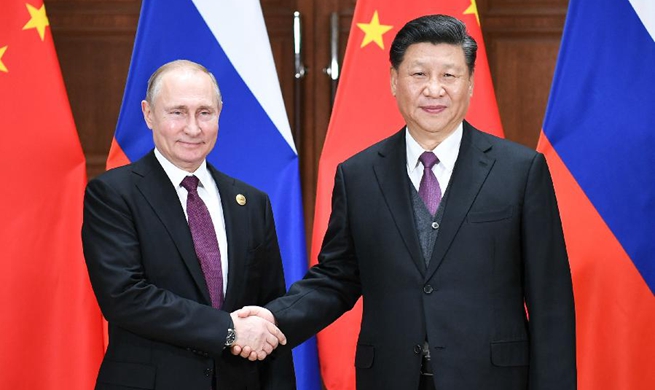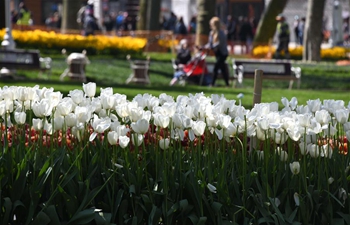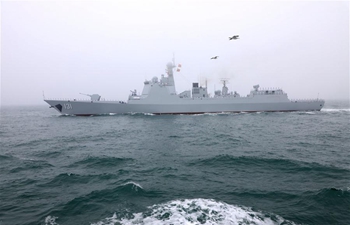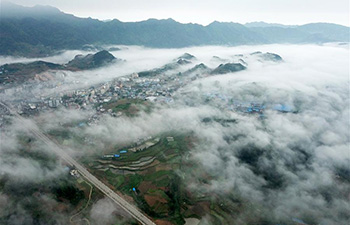ATHENS, April 22 (Xinhua) -- Two years ago, George Tzogopoulos became fascinated with the China-proposed Belt and Road Initiative (BRI). He decided to do some research and later wrote a book on his personal insights into this extraordinary project.
"I thought there was a vacuum, as far as the understanding of China in the West was concerned. It is an inclusive project where more countries can participate and more importantly, where new projects can be proposed," said Tzogopoulos, a senior research fellow at the International Center for European Studies (CIFE), a think tank based in Nice, France.
Tzogopoulos was born in Athens in 1980. By the age of 27, he had secured two master's degrees and a doctorate from Greece, Britain and France. They were in history, military affairs and politics.
Specialized in international relations, Tzogopoulos has published several books, including "The Greek Crisis in the Media" and "U.S. Foreign Policy in the European Media: Framing the Rise and Fall of Neoconservatism," as well as dozens of papers.
After China put forward the BRI in 2013, Tzogopoulos found that there were very few researchers studying the BRI and related resources were quite limited, even within his renowned think tank CIFE. The existing materials usually portrayed China from a Western point of view.
As a native Athenian, he realized that the BRI will be of great significance to Greece and the rest of the world.
For instance, the success of the Port of Piraeus impressed Tzogopoulos immensely.
The port came to his attention in 2009, a tough year for Greece.
The Greek government announced debts in the amount of 300 billion euros (about 336 billion U.S. dollars) during the global financial crisis, which accounted for 113 percent of its gross domestic product of the year 2008.
How could the Greek economy rise from rock bottom? Tzogopoulos saw hope in the Port of Piraeus.
The Port of Piraeus has long been one of the major ports on the eastern Mediterranean. It is Europe's "southern gateway." Located 10 km southwest of Athens, it covers close to 300 hectares and can handle over 4 million standard cargo units every year.
In June 2008, China Ocean Shipping Company, known as COSCO, won the contract for a 35-year franchise right to Piers 2 and 3 of the Piraeus Container Terminal.
By 2013, COSCO had refitted the two piers and turned them into Europe's fastest growing docks in handling volume.
During a recent visit to the port, Tzogopoulos was informed that COSCO was trying to build it into the largest container transshipment port in the Mediterranean.
The cooperation project under the BRI is very important for Greece, and people are happy with these investments, Tzogopoulos said.
Fortunately, Greece emerged from the Eurozone bailout program and declared an end to its debt crisis in August 2018. In the same month, Greece and China signed a memorandum of understanding to jointly develop the BRI.
In March 2019, Tzogopoulos finished his book "Reading China." In the 40,000-word book, he discusses China-U.S. relations and China-EU relations, and particularly what the BRI has brought to Greece and the world.
"It could have been a very good opportunity for me to share this experience and explain China in a book that will combine both Chinese and Western bibliographies and scholars in order to understand China. Looking at all available perspectives, and not only the Western one," he said.
He believes that as time goes on, people in the West will better understand the BRI and eventually see the inclusive nature of the initiative given that more countries and more people across the globe are taking part in it.





